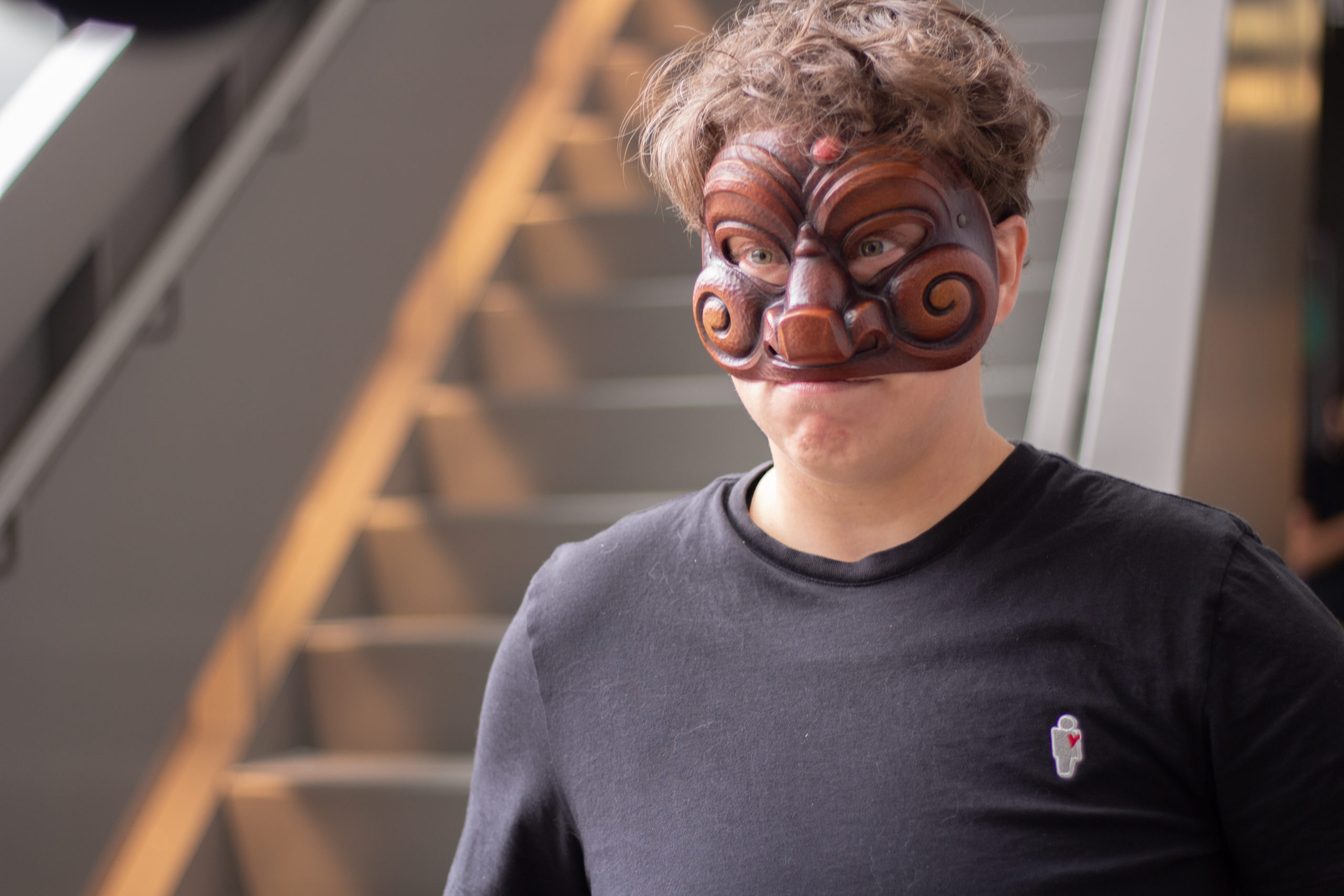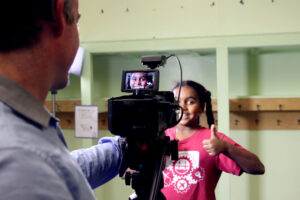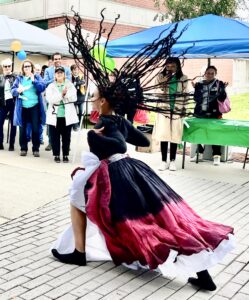Interview: VOX Théâtre reflects the major issues faced by young people
By Jessica Ruano | January 4, 2022

This interview was originally published on Apt613.ca
For over 40 years, VOX Théâtre has been a vast playground for young audiences. Stories take on a unique theatrical form with voices singing words and sounds to express ideas and emotions. Actors, music, sets, and puppets animate stories and characters that strike the imagination. In this interview from the MASC series, we speak with Pier Rodier, the Artistic Director of VOX Théâtre, to learn more about his approach, his artistic practice, and his relationship with the audience.

Pier Rodier, Artistic Director of VOX Théâtre. Photo: Théo Rodier.
MASC: The pandemic has prompted us to adapt our way of creating and conceiving theatre. When things return to normal (whatever that means!), will you look forward to presenting theatre the way you did before the pandemic, or has the past year inspired a new approach?
Pier Rodier: Since the founding of VOX, we have had to face all kinds of realities at different times, with their share of challenges; however, in each era, the artists associated with the company have always shown resilience and creativity. Our priority has always been to rise to the challenge. The challenges brought by the pandemic are particularly cruel, with health constraints preventing meetings between spectators and performing artists. But we are using the tools at our disposal to continue telling stories and sharing our knowledge. This period has allowed us to discover visual capture, editing and webinar programs that will help us reach more people in the future, people who live far from La Nouvelle Scène Gilles Desjardins, or who cannot be in a public place for health reasons. We will continue to use online tools for pre- and post-performance encounters to expand our cultural engagement initiatives, and share our knowledge of drama through virtual workshops.
You offer workshops on clowning, masks, and puppets: all ways to bring a sense of fantasy to the theatrical space. What do you like best about presenting these styles of theatre to students?
Children and young people are constantly searching for their identity, an important step in the healthy development of any person.
Children and young people are constantly searching for their identity, an important step in the healthy development of any person.
It’s also human nature to transform oneself, to transform experiences in creative ways, to tell stories, to share opinions and observations on important issues. The use of other forms of expression such as puppetry, object theatre, mask, and clown allows young participants to give themselves up more freely, because it is not the young person who is being watched, but the form of expression they use that is the very source of the performance and sharing. After the workshops, I often find that the shyest members of the group were able to share a facet of their personality that their peers did not know. It is very liberating and rewarding to see a young person assert themselves in front of their peers.

Jean-Pierre va à la lune, from the 2018-19 season. Photo courtesy VOX Théâtre.
In the description of your company, you talk about creating theatre for audiences who are only 18 months old. What do you keep in mind when creating productions for different age groups?
This is a question that is first asked by the authors: What are the themes, the stories, the ways of telling for young people at different ages? That’s how playwrights come up with the first version of a text. This is followed by feedback from their colleagues, workshops, and public readings with spectators who are the same age as the target audience. The texts are then reviewed in light of the feedback received. Each production finds its codes, its mechanisms, its rhythm in the rehearsal room and adjusts itself with the performances. At VOX, we are lucky because we regularly work with young audiences through our internships and workshops. We are attentive to their experiences and perspectives, and to their appreciation of the aesthetics we offer them in order to bring it up to date. As part of our arts education activities, we use the themes of upcoming productions to evaluate young people’s knowledge and opinions on the themes we wish to explore. Theatre is a living art based on sharing; it takes shape and spirit with each performance, with each encounter.
Not all spectators have grown up with the same theatrical culture. Our mission is to respect the rhythm of the text so that the story comes out clearly and that all spectators find it an enjoyable and intelligent experience.

Ti-Jean-de-partout. Photo courtesy VOX Théâtre.
As a member of MASC, what do you gain by offering your workshops in schools and in the community?
Meeting young audiences is the essence of my practice and a constant focus for me as an Artistic Director. It’s important for me that our work reflects the major issues faced by young people. Sometimes our shows become a mirror that validates their emotions, their concerns, their compassion, and their collective preoccupations. Sometimes they have to participate in the thread of the story by using their imagination and suggesting ideas. Some of the company’s creations propose current themes (trans-identity, mental health, and hypersensitivity, among others) presented through inventive forms of expression, poetry, and humanity. Living art moments together, witnessing a unique moment, is so important. I believe it has been a ritual since the beginning of time!
Living art moments together, witnessing a unique moment, is so important. I believe it has been a ritual since the beginning of time!

Pinocchio dans ma valise. Photo courtesy VOX Théâtre.
Why do you think it is important for our local community to have access to professional artists?
Professional artists are essential to any society. They have a mission to observe life – both the beautiful and the not-so-beautiful – in nature and in all corners of humanity. Through their observations, the artist invites everyone to ask questions in order to improve individual and collective well-being. The artist invites us, seduces us, inspires us to constantly surpass ourselves. Human beings have essential needs to survive: freshwater, bread, knowledge… and artists, who are there, it seems to me, to inspire a multitude of possibilities.
Latest News
View All Articles



